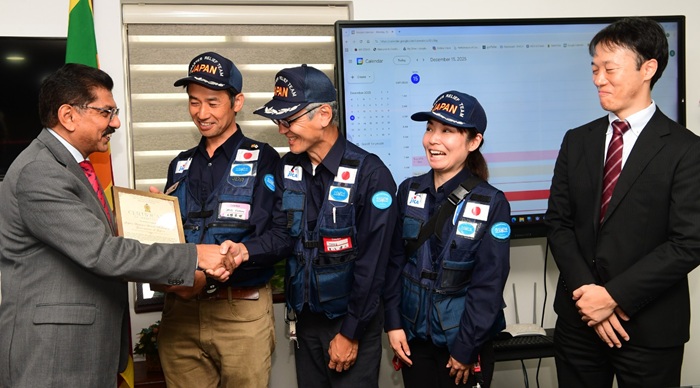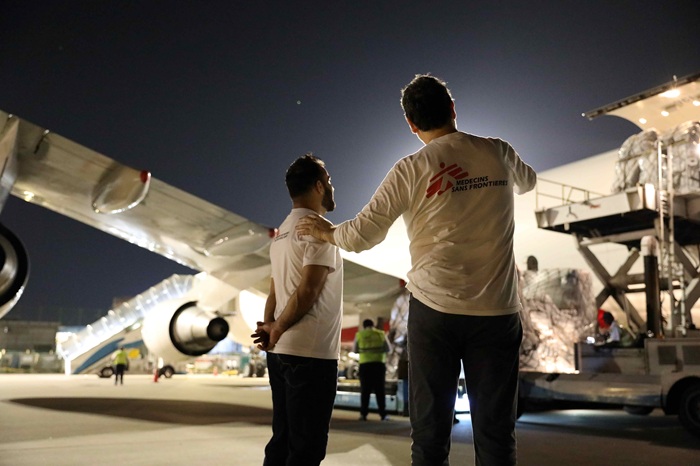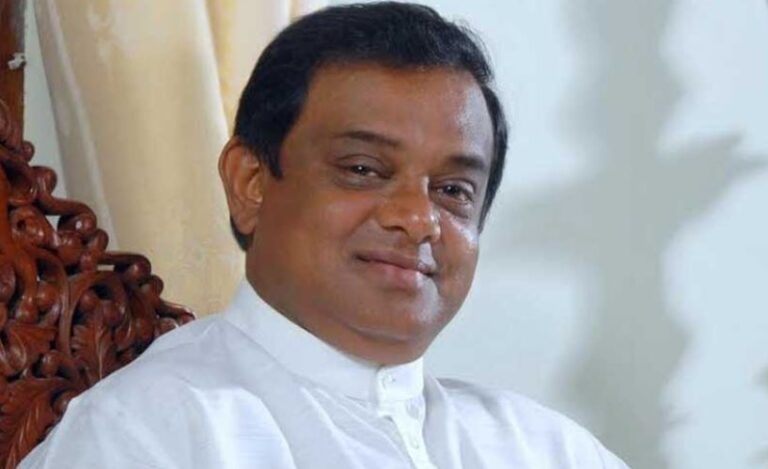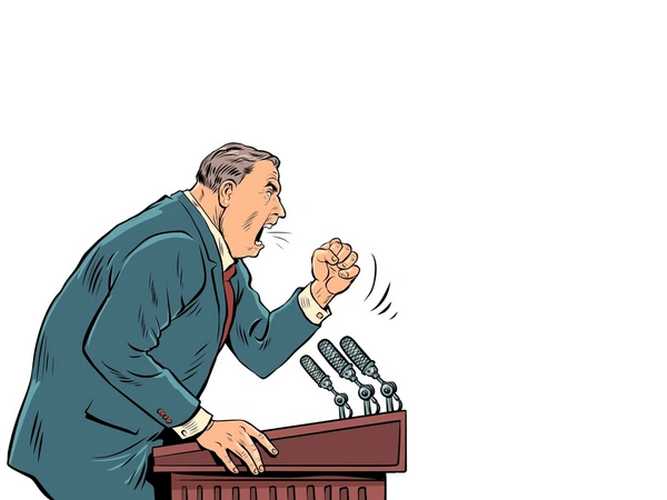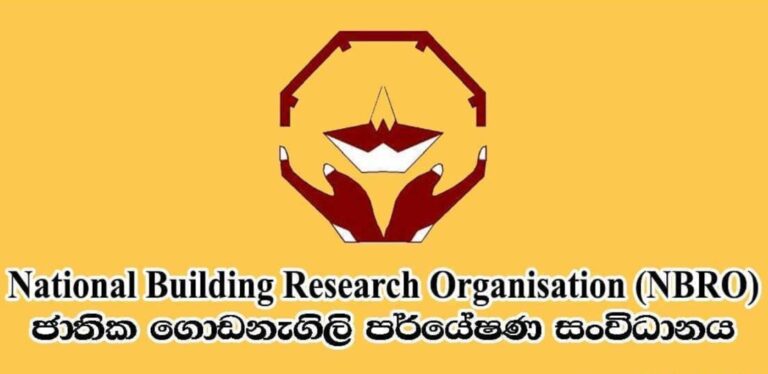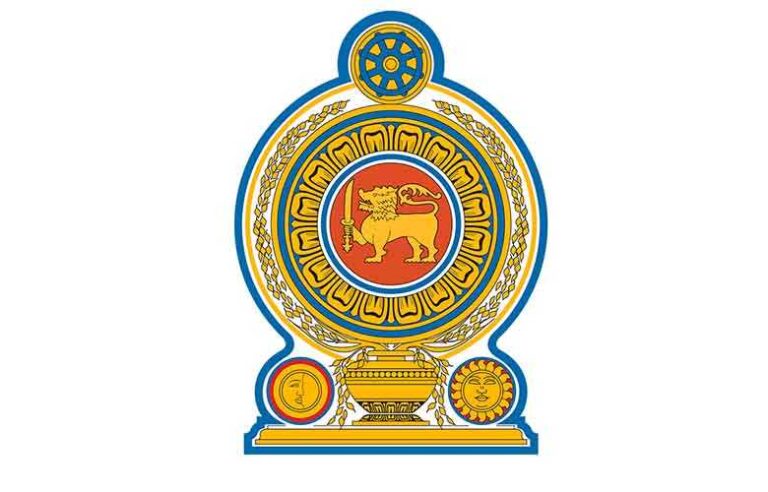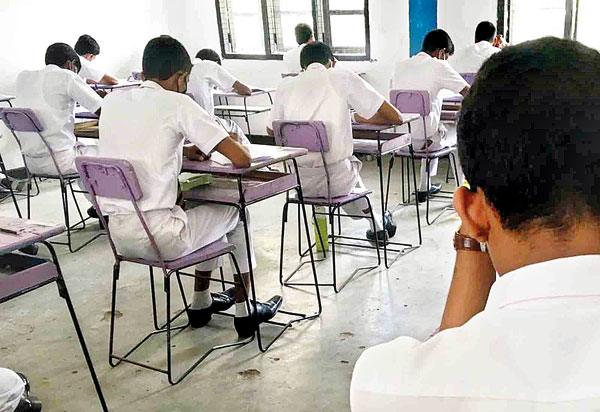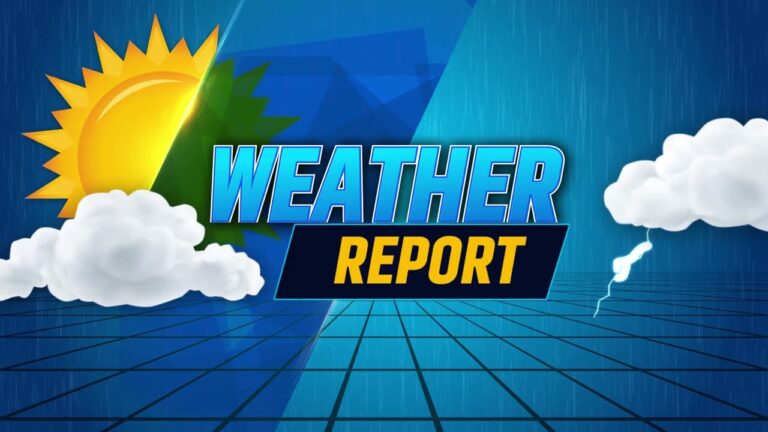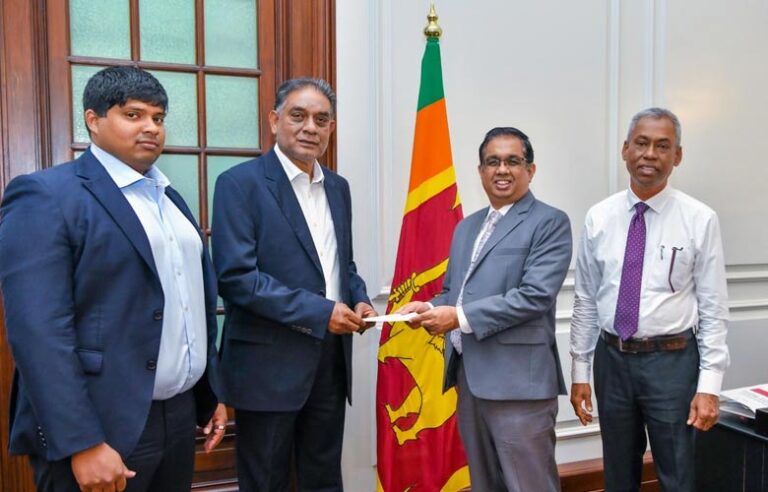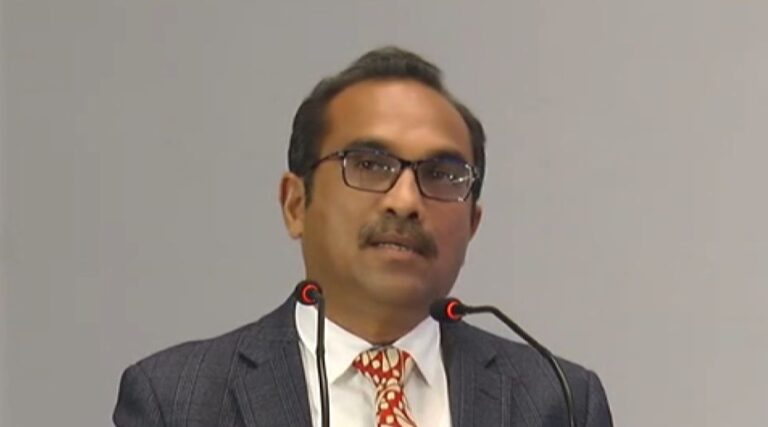December 16, Colombo (LNW): A Japanese emergency medical unit has wrapped up its humanitarian deployment in Sri Lanka and returned home after delivering vital healthcare services to flood-affected communities.
The 31-member team, deployed under Japan’s Disaster Relief (JDR) programme, arrived in the country in early December and spent close to two weeks operating a temporary field hospital at the Chilaw Police Grounds. During this period, the team provided a wide range of medical services to residents in Chilaw and neighbouring areas, including outpatient consultations, diagnostic testing, pharmacy support and essential clinical treatment.
On Monday morning, Health Secretary Dr Anil Jasinghe met the delegation at the Ministry of Health and Mass Media to formally recognise their contribution. In a statement, the Ministry said the professionalism, coordination and technical expertise of the Japanese team played a key role in strengthening Sri Lanka’s emergency health response during a critical period.
Team leader Iwase Kiichiro expressed appreciation to Sri Lankan authorities for their cooperation, describing the mission as another chapter in the long-standing partnership and goodwill between Japan and Sri Lanka.
The group comprised doctors, nurses, pharmacists, laboratory technicians, radiology specialists and disaster response coordinators, and operated in line with internationally accepted emergency medical standards. The Ministry of Health also maintained close oversight of the field hospital throughout the mission to ensure seamless coordination with local health services.
Officials said the presence of the JDR medical team helped ease pressure on local hospitals and ensured timely treatment for thousands affected by the flooding, underscoring the value of international cooperation in times of crisis.
Japanese Disaster Relief Medical Team Concludes Flood Response Mission in Sri Lanka
MSF Boosts Emergency Shelter Support for Displaced Families in Sri Lanka
December 16, Colombo (LNW): Doctors Without Borders/Médecins Sans Frontières (MSF) has stepped up its humanitarian assistance to Sri Lanka by handing over a large shipment of emergency shelter materials to the Disaster Management Centre (DMC).
The consignment, delivered earlier this week, includes 1,000 insulated family tents and 1,500 heavy-grade plastic sheets designed to withstand cold and wet conditions. MSF said the shelters are intended to offer displaced households a safer and warmer living space, particularly in hill country areas where temperatures drop sharply.
In a statement, the organisation noted that improved shelter is vital to protecting vulnerable families from severe weather and preventing the spread of illness in temporary settlements.
The latest delivery forms part of MSF’s ongoing response to the widespread flooding and landslides triggered by Cyclone Ditwah, which have disrupted the lives of more than 1.8 million people nationwide. Alongside shelter support, MSF teams are working with local authorities and community partners to address urgent needs related to sanitation, health services and essential supplies.
To date, the organisation has also provided 500 emergency relief packs and an equal number of dry food ration kits to families forced from their homes. Preparations are under way to distribute maternity kits and dignity kits in the coming days, aimed at safeguarding maternal health and personal wellbeing in evacuation centres.
David Croft, MSF’s Emergency Coordinator in Sri Lanka, said the provision of winterised tents was a key priority as families face prolonged displacement. He added that MSF remains committed to adjusting its support in line with evolving needs and strengthening cooperation with national and local agencies to ensure aid reaches those most affected.
Ex-Minister C.B. Rathnayake Released on Bail After CIABOC Probe
December 16, Colombo (LNW): Former minister C. B. Rathnayake, who was taken into custody by the Commission to Investigate Allegations of Bribery or Corruption in connection with an ongoing inquiry, has been granted bail by the Colombo Chief Magistrate’s Court.
The court ordered his release on two sureties of Rs. 2 million each, while also enforcing a ban on overseas travel as a condition of bail.
Rathnayake had been held on remand following his arrest earlier this month, after reporting to CIABOC to give a statement related to the investigation.
The inquiry is continuing, and the former minister is required to comply with all court-imposed conditions as proceedings move forward.
At the Cul-de-Sac of Politics, the Noise Only Grows Louder
By: Roger Srivasan
Standfirst: When discarded politicians resort to prophecy and theatrics, it is not strength but desperation that speaks.
A handful of disingenuous and long-discarded venal politicians now find themselves stranded at a cul-de-sac of relevance. After decades spent practising the traditional political art of tergiversation, they linger uneasily as accountability closes in — with prison doors no longer a distant abstraction but an increasingly proximate reality. Udaya Gammanpila, Wimal Weerawansa, and their fellow travellers are emblematic of this fading political order.
Stripped of credibility, substance, and public trust, they have turned to noise. Policy has given way to theatrics; persuasion has been replaced by prophecy. It is the predictable reflex of those who sense that the political ground beneath them has irrevocably shifted.
Gammanpila, in particular — an imbecilic stand-up comedian masquerading as a statesman — has recently embraced political fortune-telling. With performative certainty, he predicts that President Anura Kumara Dissanayake will “languish behind bars” once Namal Rajapaksa supposedly ascends to the presidency in 2029, with prison terms conveniently mapped out from 2030 to 2035.
Such utterances are not analysis; they are cheap political grandstanding. They belong less to the domain of governance than to the theatre of farce. Far from unsettling the nation, they merely expose the intellectual vacuity and mounting desperation of their author and his cohort.
Anura Kumara Dissanayake is a man of indomitable spirit. His political life has been forged in resistance, not privilege; tested by adversity, not insulated by impunity. Theatrical threats and nostalgic fantasies of dynastic restoration neither intimidate him nor deceive an electorate that has grown weary of deception and decay.
As the net of accountability tightens, the decibel level predictably rises. At the cul-de-sac of politics, noise becomes the last refuge of the politically spent. But noise cannot halt justice, nor can grandstanding reverse the verdict of a people determined to move forward.
History, unlike political prophecy, is not amused.
NBRO Says Landslide Threat Has Eased After Cyclone Rains
December 16, Colombo (LNW): The National Building Research Organisation has announced that areas previously flagged as vulnerable to landslides and rockfalls have now returned to stable conditions following the severe weather triggered by Cyclone Ditwa.
NBRO Director General Eng. Dr Asiri Karunawardena said more than 1,200 locations across the Central, Sabaragamuwa and Kurunegala provinces were classified as high risk during the period of intense rainfall. He confirmed that those sites have since stabilised and no longer pose an immediate danger.
With the situation improving, the organisation has shifted its attention to surveying fresh locations that could become hazardous if weather patterns change. As a precaution, teams have already begun clearing unstable rocks from slopes known to be prone to falling debris.
Monitoring remains active in districts such as Kandy, Badulla, Nuwara Eliya, Matale, Kegalle and Kurunegala, where ground conditions are being closely observed.
Dr Karunawardena stressed that although the immediate threat has diminished, continued surveillance and early intervention are vital to minimise the risk of future geological incidents.
Special Leave Approved for Public Servants Affected by Recent Disasters
December 16, Colombo (LNW): The Government has authorised a special leave arrangement for public sector employees who were unable to attend work as a result of flooding, landslides and transport disruptions caused by recent adverse weather.
A circular issued on Monday by the Secretary to the Ministry of Public Administration, Provincial Councils and Local Government has been sent to ministry secretaries, provincial chief secretaries and heads of government institutions outlining the decision.
Under the directive, state employees who could not report for duty due to the breakdown of public transport links, blocked roads or other disaster-related obstacles linked to Cyclone Ditwah will be eligible for this concession.
Affected officers must submit a written application to the head of their institution explaining the reason for their absence. The request should be supported by a recommendation from the relevant Grama Niladhari and endorsed by the Divisional Secretary.
Institutional heads have been instructed to carefully review each application and, if satisfied with its validity, forward it to the respective head of department for approval covering the actual period of absence.
The Ministry clarified that this special leave facility will be limited to absences recorded during November and December only, and will not extend beyond this timeframe.
Education Ministry Reaffirms Ban on Third-Term Exams for Middle Grades
December 16, Colombo (LNW): The Ministry of Education, Higher Education and Vocational Education has once again underlined that schools must not hold third-term examinations for students in Grades 6 to 10 during the 2025 academic year.
In a fresh communication circulated to provincial authorities and school heads, the Ministry stressed that this decision is not optional and must be enforced uniformly across all schools.
Officials were reminded that earlier guidelines on the matter remain fully in force and that any deviation from them will not be permitted.
Rainy weather influenced by easterly wave to persist: Fairly heavy falls above 50 mm expected (Dec 16)
December 16, Colombo (LNW): Under the influence of the Easterly wave flow affecting the weather over the island, the prevailing showery conditions over the Northern and Eastern provinces are expected to continue during the next few days, the Department of Meteorology said in its daily weather forecast today (16).
Showers will occur at times in Northern, North-Central, Eastern, Uva and Central provinces. Fairly heavy falls above 50 mm are likely at some places in Northern and Eastern provinces and in Polonnaruwa district.
Showers or thundershowers may occur at several places in the other areas of the island after 1.00 p.m.
Fairly strong winds of about (30-40) kmph can be expected at times over Eastern slopes of the central hills, Northern, North-central and North-western provinces and in Trincomalee, Hambantota and Monaragala districts.
Misty conditions can be expected at some places in Sabaragamuwa, Central provinces and in Galle and Matara districts during the early hours of the morning.
The general public is kindly requested to take adequate precautions to minimise damages caused by temporary localised strong winds and lightning during thundershowers.
Marine Weather:
Condition of Rain:
Showers will occur at several places in the sea areas off the coast extending from Kankasanthurai to Pottuvil via Trincomalee.
Showers or thundershowers may occur at a few places in the other sea areas around the island during the evening or night.
Winds:
Winds will be north-easterly. Wind speed will be (30-40) kmph.
Wind speed can increase up to (50-55) kmph at times in the sea areas off the coast extending from Chilaw to Kankasanthurai via Puttalam and from Hambantota to Pottuvil.
State of Sea:
The sea areas off the coast extending from Chilaw to Kankasanthurai via Puttalam and from Hambantota to Pottuvil will be rough at times.
The other sea areas around the island will be moderate.
Temporarily strong gusty winds and very rough seas can be expected during thundershowers.
Rank Container Terminal (Pvt) Ltd and Senura Civil Engineering (Pvt) Ltd Boost ‘Rebuilding Sri Lanka’ Effort with Rs. 50 Mn Contribution
December 15, Colombo (LNW): The ‘Rebuilding Sri Lanka’ fund, established to restore livelihoods and support national recovery following the devastation caused by Cyclone Ditvah, continues to attract steady financial support from both domestic and international donors, including leading companies, entrepreneurs and well-known philanthropists.
Further strengthening this nationwide initiative, Senura Civil Engineering (Pvt) Ltd and Rank Container Terminal (Pvt) Ltd made a combined contribution of Rs. 50 million today (15). Each company pledged Rs. 25 million, underscoring private sector confidence in the programme’s mission and its long-term impact on the country’s recovery.
The cheques were formally handed over to the Secretary to the President, Dr. Nandika Sanath Kumanayake, during a ceremony held at the Presidential Secretariat. Representing the two donor institutions at the occasion were Mr. Ravi Wijeratne, Mr. Shahen Wijeratne and Mr. Shantha Ilangamudali.
Rank Container Terminal operates under the ownership of Rank Holdings, a diversified conglomerate chaired by billionaire businessman Ravi Wijeratne. The group plays a significant role in Sri Lanka’s economy through its management of the RCT Container Terminal, alongside wide-ranging interests spanning the hotel and entertainment sector, energy, construction, and pharmaceutical manufacturing. Through this latest contribution, Rank Holdings and its affiliates reaffirm their commitment to national development and post-disaster rehabilitation efforts.
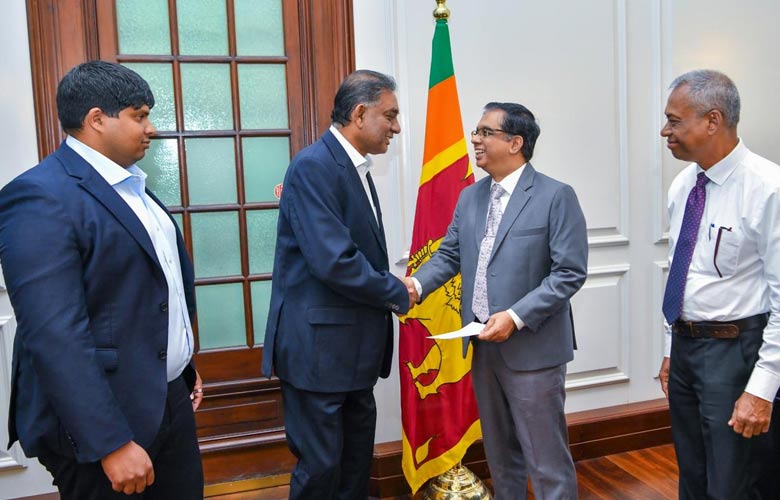
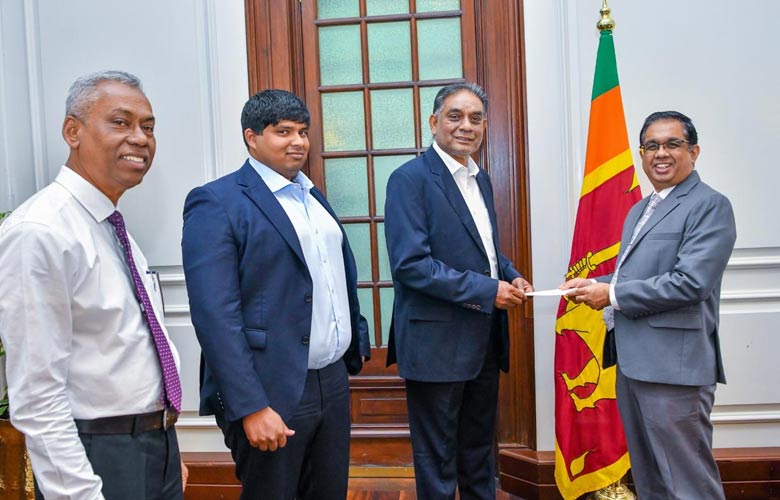
Kollupitiya Prime Land Lease Faces Controversy after Cancellation
By: Staff Writer
December 15, Colombo (LNW): The re-tendering of prime land on Perahera Mawatha, Colombo 3, has raised questions about transparency and decision-making in Sri Lanka’s urban development landscape. The parcel, Assessment No. 135, initially leased to Global Leasing Limited in September 2024 for a mixed-use development, has been reclaimed by the government after the investor reportedly failed to meet contractual obligations.
Global Leasing Limited, a well-established developer, has a track record of urban and mixed-use projects in Colombo and other urban centers, combining residential towers, commercial spaces, and hospitality ventures.
Under previous regimes, the company successfully delivered several high-profile projects, navigating complex regulatory and planning environments. The Kollupitiya project, however, remained incomplete, prompting the Standing Negotiations Committee to recommend termination.
Despite official statements citing contractual non-compliance, details of the unmet obligations remain vague. Industry insiders point to possible delays in construction approvals, financing challenges, or shifting government directives as contributing factors issues not publicly clarified by authorities.
In September 2025, the Urban Development Authority (UDA) Board authorised a fresh call for proposals to prevent the land from lying idle. A cabinet-appointed committee overseeing UDA land disposal has now endorsed a new tender prioritising hotel or commercial development, while allowing up to 50 percent residential use.
The revised lease will be executed under International Competitive Procurement for 99 years, based on a valuation by the Government Chief Assessor.
Urban Development Minister Bimal Rathnayake stated that the re-tender is intended to attract credible investors capable of completing a high-value project in one of Colombo’s most sought-after urban locations.
But the absence of public clarification on why Global Leasing Limited’s lease was terminated has sparked debate, with analysts warning that inconsistent policy decisions may undermine investor confidence.
While the new tender may ultimately generate high-quality development, the episode highlights the need for transparency in managing public land and balancing contractual enforcement with practical challenges in complex urban projects

